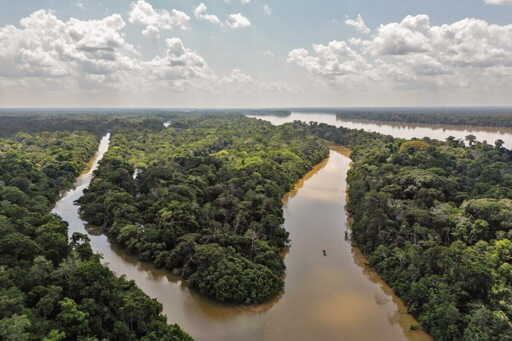Colombia will no longer approve new oil or large-scale mining projects in its Amazon biome, which covers 42% of the nation’s territory, according to a Nov. 13 statement by its environment ministry. Acting Environment Minister Irene Vélez Torres said the entire Colombian Amazon will be made a reserve for renewable natural resources. She made the announcement at a meeting of ministers with the Amazon Cooperation Treaty Organization, during COP30, the U.N. climate summit taking place in Belém, Brazil. “This declaration is an ethical and scientific commitment. It seeks to prevent forest degradation, river contamination and biodiversity loss that threatens the continent’s climate balance,” Vélez said. She also called on other Amazonian nations to adopt similar protections, highlighting that Colombia controls just 7% of the Amazon biome. Across the Amazon, 871 oil and gas blocks cover an area roughly twice the size of France; 68% of the blocks are still in the study or bidding phases. “We do this not only as an act of environmental sovereignty, but as a fraternal call to the other countries that share the Amazon biome, because the Amazon does not know borders and its care requires us to move forward together,” Vélez added. Brazil, which controls nearly 60% of the Amazon, has moved in the opposite direction over the past year, despite successfully cracking down on deforestation. The nation auctioned off several oil blocks near Indigenous lands and approved drilling for an offshore site at the mouth of the Amazon River. Peru is courting foreign…This article was originally published on Mongabay
From Conservation news via this RSS feed


